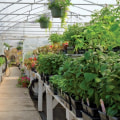While plant science and horticulture are closely related disciplines, they are not exactly the same. Both fields deal with plants, growth, and cultivation, but their scope, focus, and application often differ in meaningful ways. Plant science, also known as botany or plant biology, is a broad scientific discipline that studies the biology of plants in detail—from their molecular structure and genetics to their ecological interactions and evolutionary history. It is rooted in research and theory, often involving laboratory work, genetic engineering, and the study of plant physiology, anatomy, and biochemistry. Plant scientists might investigate how a particular gene affects drought resistance in crops or how environmental changes impact plant growth on a cellular level. Their work contributes to advances in agriculture, pharmaceuticals, and environmental science, and they often play a role in tackling global challenges such as food security, climate change, and biodiversity loss.
Horticulture as an Applied Science
Horticulture, on the other hand, is more practical and applied in nature. It involves the art, science, and business of cultivating fruits, vegetables, flowers, and ornamental plants. Horticulturists are typically concerned with the cultivation techniques, soil management, pest control, and aesthetic design involved in plant production. This field spans commercial food production, landscaping, and garden design, often requiring a deep understanding of plant biology, but with a strong focus on real-world outcomes. For example, a horticulturist might specialize in developing sustainable irrigation methods for greenhouses or selecting flower varieties that thrive in urban landscapes. While they use knowledge gained from plant science, their work is less about experimentation and more about implementation and management. This is especially visible in areas like landscape horticulture, where professionals not only select appropriate plant materials but also coordinate with industries offering paver and masonry services to create cohesive, functional outdoor environments. Their work must integrate plant aesthetics with hardscape features to build sustainable, attractive landscapes that serve both ecological and human needs.
Educational Pathways and Career Applications
Educational programs in plant science tend to emphasize biology, chemistry, and genetics, often leading to careers in research, academia, biotechnology, or agronomy. These professionals may work in laboratories, universities, or with government agencies focusing on plant breeding, environmental restoration, or scientific innovation. Horticulture programs, while grounded in biology, often incorporate training in design, soil science, and business management. Graduates might become landscape designers, greenhouse managers, crop consultants, or urban gardeners. The career paths in horticulture are often more hands-on and customer-facing, appealing to individuals who enjoy working directly with plants and landscapes rather than in research settings. Despite the different emphases, there is significant overlap between the two fields, and many professionals cross over depending on their interests and goals.
Integration of Disciplines in Modern Practices
Today’s complex environmental and agricultural challenges require an integrated approach that blends plant science with horticulture. For instance, the development of disease-resistant plant varieties relies on the genetic insights provided by plant scientists but needs horticulturists to apply and manage those varieties in real-world growing conditions. Urban agriculture and sustainable landscaping projects also benefit from both areas: plant scientists provide the knowledge on optimal plant selection and care, while horticulturists implement those plans on the ground. Whether it’s in the planning of rooftop gardens, community farms, or eco-friendly parks, collaboration between both fields is essential to creating solutions that are both scientifically sound and practically viable.
Conclusion: Complementary but Distinct
In conclusion, plant science and horticulture are not the same, but they are deeply interconnected. Plant science provides the foundational knowledge that helps us understand how plants grow and respond to their environment, while horticulture applies that knowledge to solve practical problems, beautify spaces, and produce food. Think of plant science as the "why" and horticulture as the "how." Whether you're interested in decoding plant DNA or designing a sustainable backyard garden, both fields offer valuable insights and opportunities. Together, they form a holistic view of the plant world—one rooted in discovery and nurtured by application.






